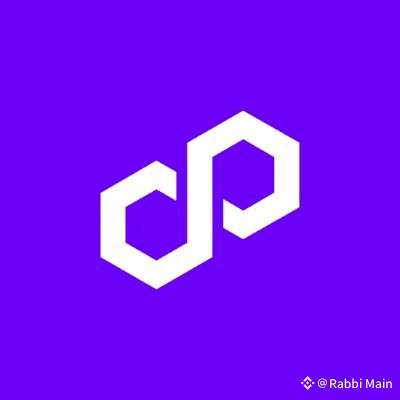
Access to financial services remains a major challenge for millions of people worldwide. Traditional banking systems are often inaccessible due to geographic, economic, or regulatory barriers. #Polygon is at the forefront of changing this reality, offering blockchain solutions that bring financial services to the unbanked and underbanked, enabling true global inclusion.
Polygon’s scalable, low-cost, and secure infrastructure provides the foundation for borderless financial systems, making it possible for anyone with an internet connection to participate in the global economy. By combining decentralized finance (DeFi), NFTs, and fast blockchain technology, Polygon empowers users worldwide to save, trade, lend, and invest without relying on traditional intermediaries.
Why Financial Inclusion Matters
Over 1.4 billion adults globally lack access to basic financial services. Without access to banks, loans, and digital payments, individuals face challenges in entrepreneurship, savings, healthcare, and education.
Blockchain technology can break these barriers. By creating decentralized platforms, individuals can access financial tools securely, transparently, and affordably. Polygon’s high-speed and low-cost transactions make it feasible to reach people who cannot afford high fees or slow processing times.
Polygon’s Role in DeFi for Everyone
Polygon’s DeFi ecosystem is a critical driver of financial inclusion. It hosts decentralized exchanges, lending platforms, and stablecoins that allow users to interact with global financial systems seamlessly.
Key DeFi benefits on Polygon include:
Affordable transactions: Low gas fees make small-scale trading and microloans practical.
Access to liquidity: Users can lend and borrow crypto assets directly, bypassing banks.
Yield opportunities: Even small investors can earn interest on deposits via staking or liquidity provision.
Cross-border payments: Fast, low-cost transactions enable international remittances without traditional intermediaries.
By providing these tools, Polygon opens doors to opportunities that were previously out of reach for millions of people.
NFTs and Digital Assets for Inclusion
Polygon is also using NFTs to expand financial inclusion. By tokenizing assets, creators and entrepreneurs in developing regions can monetize art, music, or digital content. Communities can access new revenue streams, and investors can participate in global markets.
NFTs on Polygon are energy-efficient and affordable, making them an accessible tool for creators without high costs or technical barriers. This democratizes wealth creation and empowers small communities globally.
The Role of $POL in Inclusion
Central to Polygon’s mission is $POL, the native token that facilitates transactions, staking, and governance. $POL ensures the network operates smoothly, allowing users to perform financial actions affordably and securely.
For emerging markets, $POL is more than a token — it’s a bridge to global finance. Users can store value, participate in decentralized applications, and engage in digital economies previously limited to more developed regions.
The Future of Financial Inclusion on Polygon
Polygon is continuously expanding its ecosystem to reach more users worldwide. Upcoming technologies, such as Polygon zkEVM and Polygon Supernets, will further reduce costs and improve scalability, enabling larger populations to access DeFi, NFTs, and other blockchain-based services.
By collaborating with fintech companies, NGOs, and governments, Polygon is building solutions that support global inclusion — from digital wallets for the unbanked to decentralized lending platforms for small businesses.
Conclusion
Polygon is transforming global finance by making decentralized services accessible to everyone. Its scalable and low-cost blockchain, combined with the utility of $POL, ensures that financial tools reach those who need them most.
By empowering individuals worldwide with access to DeFi, digital assets, and secure blockchain systems, Polygon is not just enabling financial inclusion — it’s building a more equitable and connected global economy.
